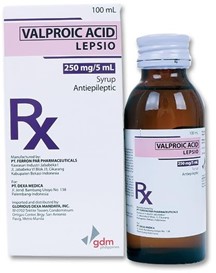The nurse is administering valproic acid to a client for seizures and finds a serum range for valproic acid of 130 mcg/mL. What does the nurse anticipate the provider will do?
Make no changes.
Increase the daily dose.
Change the medication.
Decrease the dose.
The Correct Answer is B
The therapeutic range for valproic acid is 50-100 mcg/mL ¹. In this case, the client has a serum range for valproic acid of 130 mcg/mL, which is above the therapeutic range but below the toxic level of >100 mcg/mL ¹. The nurse would anticipate that the provider will increase the daily dose of valproic acid to bring the serum range within the therapeutic range.
Option A is incorrect because the serum range is above the therapeutic range and changes may be needed.
Option C is incorrect because changing the medication may not be necessary if adjusting the dose can bring the serum range within the therapeutic range.
Option D is incorrect because decreasing the dose would lower the serum range further below the therapeutic range.

Nursing Test Bank
Naxlex Comprehensive Predictor Exams
Related Questions
Correct Answer is B
Explanation
It is important for the nurse to understand why the client is refusing to take the medication. There may be underlying reasons such as side effects, fear, or misunderstanding about the medication. By investigating and addressing these concerns, the nurse can help the client make an informed decision about their treatment.
Option A may not address the underlying reasons for noncompliance and could be perceived as confrontational.
Option C may be appropriate after understanding the reasons for noncompliance and discussing them with the provider.
Option D may also be appropriate in some cases, but it is important to first understand the reasons for noncompliance before involving a social worker.
Correct Answer is C
Explanation
Dantrolene is a medication that can be used to manage symptoms of malignant hyperthermia ¹. Malignant hyperthermia is a life-threatening reaction to certain medications used during general anesthesia ².
Dantrolene works by inhibiting the release of calcium in the muscles, which helps control the condition and restore normal vital signs ³.
Option A is not correct because baclofen is not used to manage symptoms of malignant hyperthermia.
Option B is not correct because diazepam is not used to manage symptoms of malignant hyperthermia.
Option D is not correct because tizanidine is not used to manage symptoms of malignant hyperthermia.

Whether you are a student looking to ace your exams or a practicing nurse seeking to enhance your expertise , our nursing education contents will empower you with the confidence and competence to make a difference in the lives of patients and become a respected leader in the healthcare field.
Visit Naxlex, invest in your future and unlock endless possibilities with our unparalleled nursing education contents today
Report Wrong Answer on the Current Question
Do you disagree with the answer? If yes, what is your expected answer? Explain.
Kindly be descriptive with the issue you are facing.
